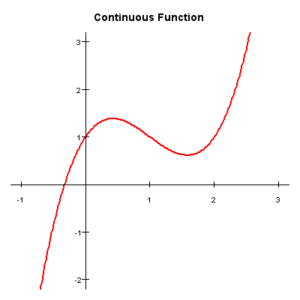While In the Interest of Z.A. involved an issue unique to family law, the relevant facts are instructive about when the denial of a continuance can create reversible error: “Evidence presented at the hearing indicated that E.S.S. [the ‘alleged father’ was indigent and without transportation. Further, he was operating under the faulty assumption that testing would be scheduled in Sherman when he moved there. There was no testing facility in Sherman, however, and the caseworker did not inform him of this fact. And, as of the hearing date, E.S.S. was incarcerated in the Grayson County Jail. Although there is evidence the Department made some attempt to schedule a third appointment at the jail, there is no evidence as to why that did not happen. His attendance at a third appointment would have essentially been assured had it been scheduled to take place at the Grayson County Jail. When E.S.S. presented his motion, he asked the trial court to schedule the genetic testing before terminating his parental rights.” No. 05-21-00126-CV (Aug. 6, 2021) (mem. op.).
Category Archives: Continuance
 In re: Sakyi reminds: “the unique and serious circumstances created by the COVID pandemic require flexibility and adaptability in all aspects of our legal system.” the Court went on to grant mandamus relief about the the denial of a motion for continuance, observing: “In this case, all factors weigh in favor of concluding that the trial court’s denial of the continuance was an abuse of discretion. First, this case is not old; at the time the continuance was sought, the case had been on file for less than a year. Second, the discovery sought is central to the underlying divorce suit since RPI’s marriages, if overlapping, may affect the determination of what property is in the marital estate at issue and raise equitable considerations of possible fraud. Indeed, the trial court acknowledged that the conflicting marriage dates created an issue of fact. Third, Relator’s counsel submitted an affidavit describing her diligent efforts to obtain the necessary discovery before trial.” No. 05-20-00574-CV (Aug. 20, 2020) (mem. op.)
In re: Sakyi reminds: “the unique and serious circumstances created by the COVID pandemic require flexibility and adaptability in all aspects of our legal system.” the Court went on to grant mandamus relief about the the denial of a motion for continuance, observing: “In this case, all factors weigh in favor of concluding that the trial court’s denial of the continuance was an abuse of discretion. First, this case is not old; at the time the continuance was sought, the case had been on file for less than a year. Second, the discovery sought is central to the underlying divorce suit since RPI’s marriages, if overlapping, may affect the determination of what property is in the marital estate at issue and raise equitable considerations of possible fraud. Indeed, the trial court acknowledged that the conflicting marriage dates created an issue of fact. Third, Relator’s counsel submitted an affidavit describing her diligent efforts to obtain the necessary discovery before trial.” No. 05-20-00574-CV (Aug. 20, 2020) (mem. op.)
 In Gibson v. Stonebriar Mall LLC, a premises-liability claim, the plaintiff sought a continuance; her motion “asserted she needed more time to obtain the depositions of (1) a Nordstrom employee who allegedly received information regarding a patron falling in the same area prior to her fall; (2) the Mydatt security guard or other employee who treated the sidewalk; and (3) a Stonebriar corporate representative,” as well as “identification of mall management assigned to respond to the scene,” and “information that Mydatt’s contract with Stonebriar may have been conveyed to another corporation prior to the incident.” The supporting declaration from her attorney did not “explain[] that Gibson used diligence in obtaining this discovery or was denied the discovery,” and also “d[id not explain the materiality, relevance, and purpose of the discovery sought other than stating, ‘These are material fact witnesses who have yet to be identified and deposed.'” For this and other reasons, there was no abuse of discretion in denying the continuance. No. 05-17-01242-CV (Feb. 8, 2019) (mem. op.)
In Gibson v. Stonebriar Mall LLC, a premises-liability claim, the plaintiff sought a continuance; her motion “asserted she needed more time to obtain the depositions of (1) a Nordstrom employee who allegedly received information regarding a patron falling in the same area prior to her fall; (2) the Mydatt security guard or other employee who treated the sidewalk; and (3) a Stonebriar corporate representative,” as well as “identification of mall management assigned to respond to the scene,” and “information that Mydatt’s contract with Stonebriar may have been conveyed to another corporation prior to the incident.” The supporting declaration from her attorney did not “explain[] that Gibson used diligence in obtaining this discovery or was denied the discovery,” and also “d[id not explain the materiality, relevance, and purpose of the discovery sought other than stating, ‘These are material fact witnesses who have yet to be identified and deposed.'” For this and other reasons, there was no abuse of discretion in denying the continuance. No. 05-17-01242-CV (Feb. 8, 2019) (mem. op.)